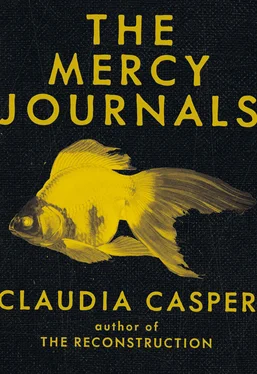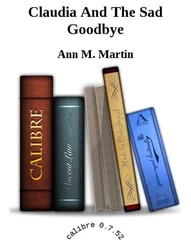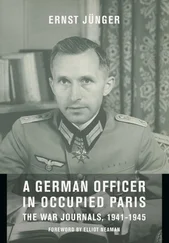She swallowed and waited.
I’m thinking I won’t replace them when the last one dies.
We all need something, one thing, that’s just for us, she said, free of rules and other people. No rule would stop me from dancing.
She left sometime after midnight. I offered to accompany her but she said she liked walking by herself. I gave her my Callebaut so she’d have to return it.
She came over every night that week. I didn’t question it. I gratefully accepted. We threw ourselves at each other, trying to get under each other’s skin through the calisthenics of desire and love. I say love. It wasn’t the love of twenty-year-olds — we’d both already had good helpings of life — nor was it the love of commitment and sacrifice yet, but I would already have given up a lot for her. Sometimes we made love with so much frustration and fear and uncertainty that we bashed ourselves against each other, and these times might have been the most lustful.
She started staying the night, leaving with me in the morning when I went to work. I noticed something about her. She was often still, and by still I mean stiller than anyone I’d ever met. She didn’t fiddle, or tap or move her head, or rearrange any part of her posture. She found her position and committed to it. Lizard still. Or she was moving. When I cooked I’d glance at her and she’d have a leg up on the counter, leaning forward in a stretch, or she’d have her leg back and be pulling her foot toward her head, or she’d throw one arm over her shoulder and clasp it with the other hand.
I had push-up grips on the floor, which protected my wrists, and she’d drop to them almost carelessly and float a quick thirty or forty push-ups and then float to something else.
As a soldier who had gone through boot camp and several reboot camps, whose body was trained to take punishment and stay effective in extreme situations, watching the way Ruby inhabited her body was like watching a slightly different species. I felt like a robot or some sort of automaton next to her, except when we were making love, and then my body seemed miraculously to know the same language.
I wanted to know more about her. How did you become a dancer? I asked. She had a way of answering that was precise but deflecting, keeping me at a distance. Her parents had been people with jobs, she said. First-generation immigrants: mother Portuguese, father Argentinian. They wanted a career for her, an education, a step up the ladder — doctor, lawyer, pharmacist. She remembered, even when she was a toddler, making up dances to the music they played — Fado, tango, gypsy, hip hop, classical — and then practicing the moves over and over. She’d asked for dance lessons, but they kept putting her off. Finally, when she was eight years old, they agreed to pay for one lesson a week, but she knew she wanted to become a great dancer and to do that she’d have to train every day. She arranged to work as a receptionist for her ballet teacher after school and on weekends in exchange for classes five days a week. She did this from age eight to thirteen, when she tore her hamstring.
I prodded more. So how is it you became a customs officer?
I left home at seventeen, she said. I was restless and wanted to be independent and free of rules. I got a job at a mall and couldn’t afford lessons anymore. I fell in love. Etcetera. My boyfriend’s mother had a connection at the border and the pay was much better.
In the morning when we went our separate ways, I asked where she was going. She was never one to volunteer information. My day to lead dance class, she answered and turned down a different street, bundled up in layers of sweaters and tights.
Why did you pick me? I asked one evening after dinner, feeling playful.
Didn’t you pick me?
No. I only offered myself.
Are you fishing for compliments?
Of course.
A smile took over her face, starting in her eyes, which softened from the focus of eating, a focus that was singular and intense with her, and slowly spread to a grin.
Your eyes, she said. The way they’re set in your face. You could meet me in the middle of a riot or an earthquake, and you’d still be looking at me.
She ran her finger over her plate to get the last bit of juice from the sausages. Your muscles. Then licked her finger. And the fact that you’re not desperately trying to survive, but you’re not defeated either. It’s true you seem a bit dead, but a girl’s not worth her salt if she doesn’t like a bit of a challenge.
I laughed.
The only truly sexy thing in this world, Allen Quincy, is consciousness and you, despite the partly dead bit, have that in spades.
Any thoughts of keeping my life small and controlled went out the window. I parked my brain, double-parked my past, jacked up disbelief, and towed skepticism to the wrecking yard. Whether she had been created by a benevolent universe or by luck to save me, I didn’t care; she was in my bed and she was resurrecting me toe by toe, follicle by follicle, scar by scar.
If I had only accepted what she offered without seeking more, we might have been all right.
Earlier this evening, I used my penknife to break the seal on the whiskey bottle and therefore had to go looking for it when I needed to sharpen my pencil. I found myself pouring another drink, though I had not intended to, knocked it back in three gulps, and now I’m over the line. My pencil may be sharp but my mind is too dull to keep my story going. There’ll be no laying an ambush tonight.
I have a confession, besides that I’m drunk.
I’m ashamed to admit it and have never revealed this to anyone.
I think I am a good man.
Still.
We always said, We’re fighting for peace, we’re risking our lives so others can live in peace. They sell every war as a vaccination against a future one, a prophylaxis against itself — have one now so you won’t need a bigger one later. But that is why I became a soldier. I loved the camaraderie and not being behind a desk, and there was my father, but really I became a soldier because I wanted to stand up for innocent civilians against the bad guys …
Maybe I was a good man, who knows. In any case, once again I am a man who can no longer live with himself.
Now my pencil is dull too. I’m going to sleep.
It was around that time I started having one of those repeating dreams, and one morning before we got out of bed, I told her about it.
I locked you up in a gingerbread house in a cage beside the oven and I was fattening you up. I was feeding you roast chicken and gravy and beef — feasts from the old days — tandoori, teriyaki, cookies, puddings, trifles, and cakes. I kept them coming, feeding you through an opening in your cage. All the time I had the key to your cage, a chicken bone on a strip of rawhide, around my neck.
I didn’t tell her that in the dream she was naked and scared and cringed in the corner of the cage except when I brought her food.
You ate like a wild animal, stuffing your face until the food was gone, but you never put on any weight and I worried I might never be able to eat you.
She laughed. It wasn’t a full laugh — it was short, a sound of surprise and pleasure in the surprise.
That’s quite a flattering picture you paint of yourself, she said, a wicked witch in a gingerbread house. She stretched out under the covers, put her arm across my chest, and whispered, I better be careful tonight when I’m eating so you don’t discover where I’m putting it all. I want to keep you working hard in that kitchen.
I went to work that day feeling happy, though I see now, also with an undertone of anxiety. I had never thought I’d feel happy in that way again. Connected to someone. The rain had stopped and it was silent outside except for a light gurgling of water in drainpipes. I took the longer route by the bay where the loading docks used to be, wanting to stretch out my walk. The huge red loading cranes stood in water up to their knees, like a phalanx of long-necked robot Apatasauri, lifting their heads as though at a sound and looking into the distance.
Читать дальше
